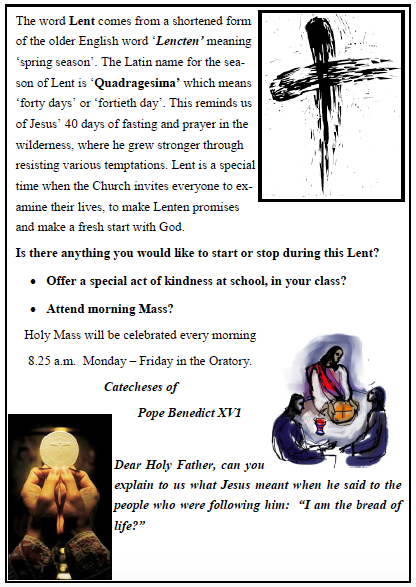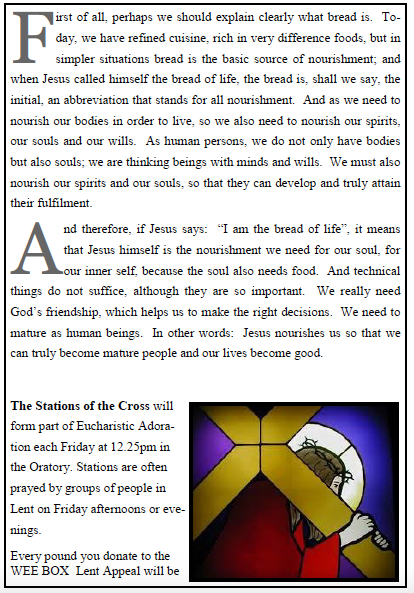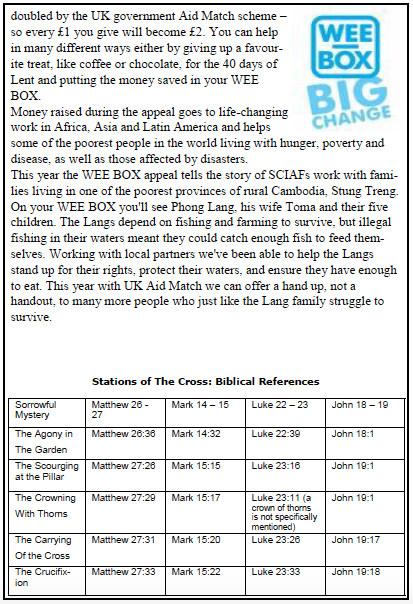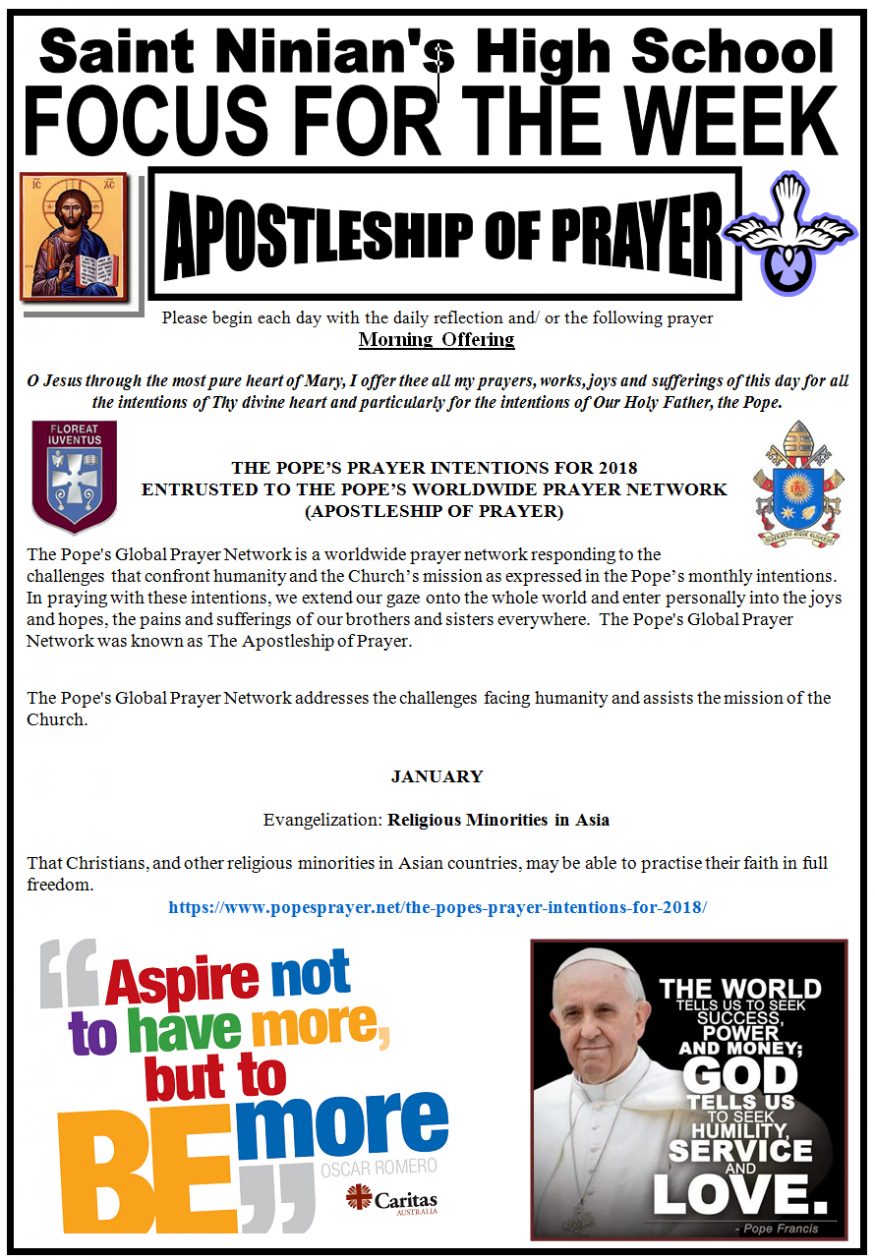Category Archives: Focus of the Week
Jesus, a man of authority
In the Gospel reading for Education Sunday (Mark 1: 21–28) we hear ‘as soon as the Sabbath came Jesus went to the synagogue and began to teach. And his teaching made a deep impression on them because, unlike the scribes, he taught them with authority’.
Jesus, a man of authority
People experience the power. But what kind of power is it? It is the power of authority. The word authority comes from a Latin verb augere, which means to make something increase. Its root can be found in words like ‘authority,’ ‘author.’ Its root is also found in the English verb ‘to wax’ (as the moon ‘waxes’ and wanes). So real authority is not just, as we often interpret it, having power over people so that we can make them do what we want them to do. Genuine authority is the ability to en-able people, to em-power them. To enable them to transcend themselves, to grow as persons, to be more effective in the development and use of their innate gifts.
Authority as service
Jesus did not come to rule and control people. He came, he said, not to be served but to serve. He came, above all, to make people free. So that in their freedom, they could generate all the productive and growth energies within them and be alive with the life of God within them. He freed them from all the ‘evil spirits’ (Mark 1: 21–28), of fear, compulsions, narrow self-centredness, anger, resentment, hostility and violence which prevent people from truly enjoying the experience of being alive. “I have come that they may have life, life in abundance.”
The whole of Jesus’ life was a continual teaching – wise, calm, powerful but gentle, enriching life for those who listen.
Focus of the Week
Two very important virtues we seek to develop in our young people for living and learning are growing to be intentional in the way they live and use the resources of the earth, guided by conscience; and prophetic in the example they set to others.
The busy-ness of life can sometimes feel overwhelming. It is no different for our young people: demands made by schoolwork, assessments, homework, examinations, the many activities to which their parents ferry them, peer pressure and social media, and just growing up and finding their place in an increasingly complex and fractured world. Of course there is excitement and often fulfilment in all this. But the pressure to conform and go along with what everyone else thinks and says and does is immense. The effect sometimes is to lose control – a feeling that this whirl of activity is not allowing me to be me.
Living intentionally is not about our young people stepping away from the world but is rather about trying to achieve a balance where they know what is important for them and what they want to spend their time and energies doing.
Living intentionally can only happen if they are attentive to their experiences, noticing the influences which drive them along and discerning which are good and which not so good, guided by conscience.
It means living ethically, with a set of values.
Our school offers the model of Jesus Christ as a person who lived intentionally and prophetically. His words, actions and example reflect his values. However much the values of the world, the assumptions and prejudices of those around us, seem to be unassailable, Christ calls us in a different direction to a life characterized by compassion, faith, hope and, above all, love.
Trying to live in an intentional and prophetic way is what ultimately makes us human.
Focus of the Week
THE POPE’S PRAYER INTENTIONS FOR 2018
JANUARY
Evangelization: Religious Minorities in Asia
That Christians, and other religious minorities in Asian countries, may be able to practise their faith in full freedom.











